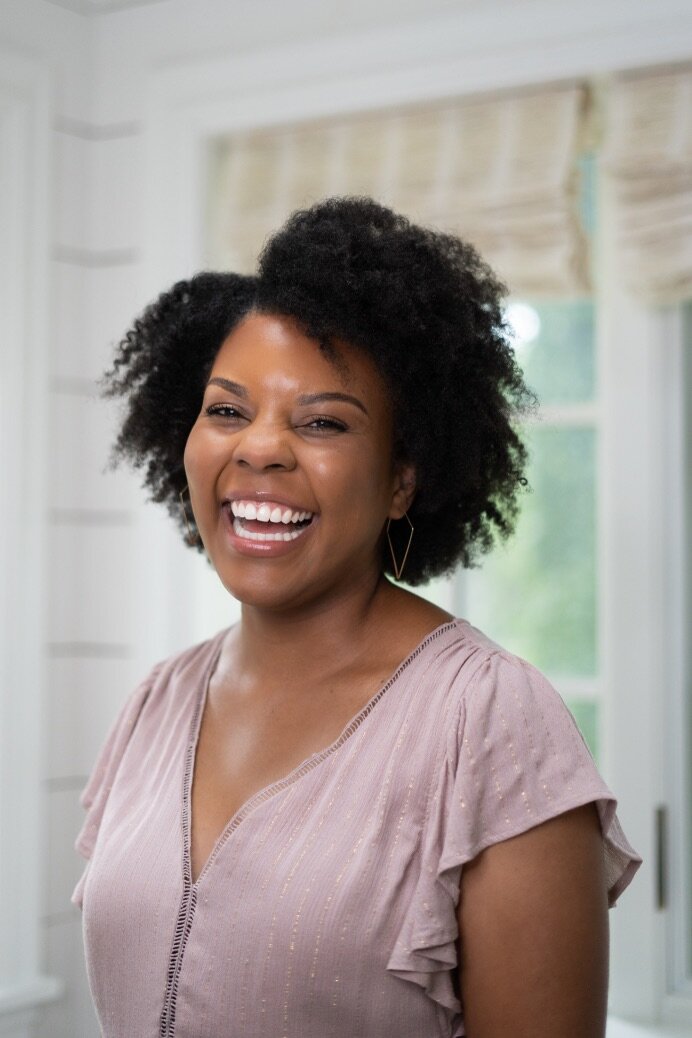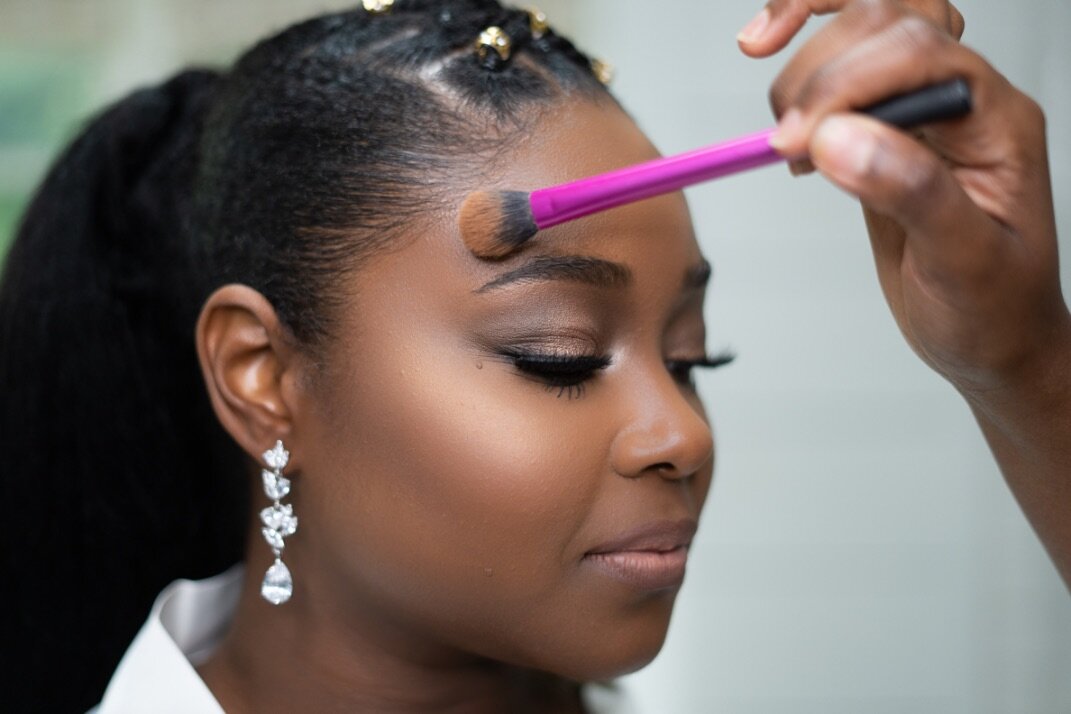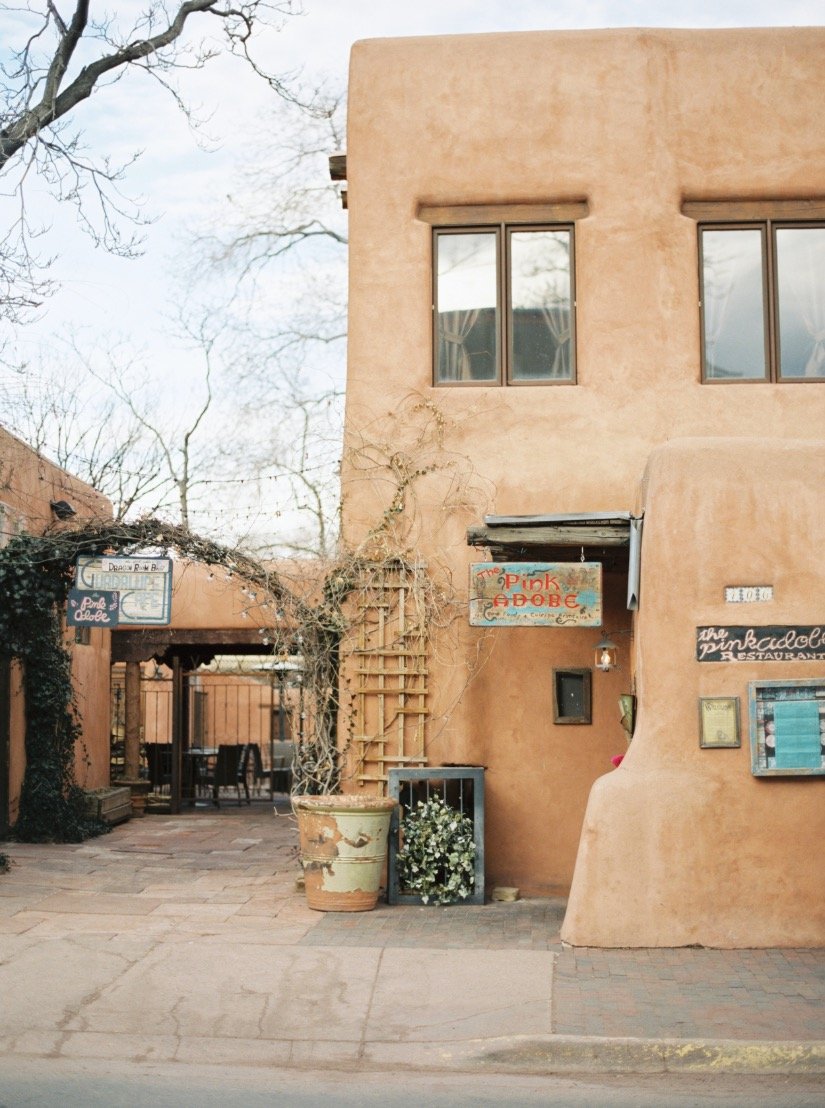A Discussion on Inclusivity In Hair and Make-Up and The Wedding Industry
An Interview with MLB Artistry and a Discussion of Race in the Wedding and Beauty Industries
In each issue of B.E Wed Oklahoma, we publish a highlight on a female-owned local business. Issue Two’s highlight? Modern Luxury Beauty by Marci Gaines, more commonly known as MLB Artistry. Marci Gaines provides luxury wedding makeup artistry services to Oklahoma brides.
I interviewed Marci for a two-part story rather than a simple profile. You see, Marci previously posted on social media about how many times makeup artists and hair stylists lack in having inclusive shades and training for makeup artistry and training for inclusivity in hair. Seeing this, I knew a second part of an interview was necessary. For part one, we drank coffee together in my living room while she told me about her journey to success in makeup artistry.
photography : B.E Publishing
B.E : How did you start your career and what made you fall in love with makeup artistry?
I started doing makeup in 2012, but prior to that, I started going to school for interior design. I have always loved all aspects of art, so design is where I started initially. I don’t enjoy school, so as I was in school, I’m thinking, man, I have to do this for at least three more years, and I just was not a fan of that process—having to be in school that length of time. So, [around that time,] I went to one of my girlfriends’ house for a girls night and she says, “Have you ever thought of being a makeup artist?” And I’m like, “No, that’s not anything I’ve ever considered. I love makeup, I love doing my own makeup, but I never thought of doing it on other people or as a career.” So she says, “You should consider doing it as a career. I know you love interior design, and this is another form of art where you’re able to express yourself.” So I thought I would look into it. I looked into Clary Sage and at the time, they just started doing a program where they offered hair and makeup, and I thought, why not? So I enrolled. I graduated, but I was working in corporate america at the time, and the job was so stressful, it was literally making me sick. [It got to the point where I decided] I’m going to go to the doctor and get a checkup and see what’s going on, and they say, for lack of better words, you need to quit your job unless you want to kill yourself because your stress is that high. Luckily, God has a plan for everything, so I had just graduated from Clary Sage and I had applied numerous times to try to work at the MAC counter [to transition out of corporate] and the third time was a charm. I applied the third time and I got hired. I was working the MAC counter while working the corporate job, I was thinking, I can’t continue to do both of these at the same time, so my husband encouraged me to quit my corporate job. I quit and began working full-time at MAC as a freelance artist and that’s where my career got its kickstart. I worked there a total of two and a half years. From there, my goal was to expand my artistry—learn different techniques, build clientele and be operating on my own. It’s been a journey—a very challenging journey. Sometimes people look at makeup artists and think oh, you’re just a makeup artist, you’re not doing anything with your life. But it is a challenging job because it is impactful. You are able to be a part of someone’s very special moments, and most importantly, you are able to give women a type of confidence that they never knew existed. So that’s what I enjoy about it the most. I feel like I have finally gotten to that point where I have a brand. I was talking to a friend the other day, and she’s like, “Marci, You have a BRAND.” So I think to myself, Yeah! I’ve made it! What is that saying? ‘Mama, I made it!’ It feels so rewarding to know that the sweat, tears, and hard work paid off because, girl, it’s been hard. I remember taking makeup jobs where I was making like 30 dollars per face. Oh my goodness, it’s crazy to think about that. So yeah, it’s humble beginnings, to say the least, which makes it all the more worth it.
B.E : What sets you apart in the makeup industry? Please feel free to totally brag on yourself here.
I am ambitious. If I have something set in my mind, I am going after it, and I am not going to stop until I get there. Also, I am always learning—attending different workshops and training with other makeup artists that are at a higher level. I have high-quality products within my kit, including luxury skincare—those products are used in a service I provide to my brides to prep before the makeup application. The prep is skin-focused and more intense than a regular makeup prep. My main style is natural glam, and that starts with the skin, so the skincare is important. I feel that makeup should be something that amplifies your natural beauty and enhances your features. In fact, I send out an email a few weeks prior to the wedding with a long list of skin prep suggestions and details on how many days/weeks in advance they should do certain treatments—treatments like eyebrow threading, dermaplaning, or spray tanning. I always recommend dermaplaning to my brides—it makes the biggest difference for makeup application.
*I will add here that toward the end of our interview, when she revealed Jacque’s final look, I discovered just how detail-oriented she is and how far she goes for her clients. She takes a few iPhone shots of the bride to see if any areas need to be touched up—she tells me that there are some things the camera picks up that the naked eye does not. She does this to make any fixes that could show up in the wedding photos. After she makes the final fixes, she pulls an ornate vintage gold mirror from her bag and hands it to the bride while she videos her reveal for social media. I am certain that behind the scenes, there are even more details like these to ensure her brides leave her chair feeling like queens.
B.E : What is a common misconception for makeup artists?
Sometimes, potential clients look at artists based off of price alone, not based off of your skill and your level of artistry. I understand, and that artist may charge you 45 dollars per face, but are you actually getting an experience with that 45 dollars? No. They probably have lower-quality products within their kit. At 45 dollars, they cannot be making enough of a profit to afford the high quality products. That can be a little disheartening at times, but I understand everyone has a budget that they have to adhere to. Another misconception for me personally is that makeup application will take 30 minutes. I am conscious that that is a huge day for my brides and they have invested countless dollars on a photographer who is going to be like super focused on shots of the bride, so I want to make sure that they look their absolute best. To achieve this, it takes about an hour and fifteen minutes for the bride’s application.
B.E : What is the most rewarding part of being a makeup artist?
I like to build relationships with my clients, so a lot of my clients will tell you, I’m not just their makeup artist, we grow to become friends. That’s what I enjoy doing— building relationships with my clients. [I want my brides to know] that you are gaining a friend in me.
B.E : Favorite local spots?
Roosevelt’s and Black Sheep Boutique!
Women of color, especially Black women, have historically had a difficult time finding proper shades for their own makeup kits at home. In addition, makeup artists have typically not been trained on women of color during their time in school. Let me repeat that: beauty schools do not teach students how to apply makeup or style hair on women of color, and if they do, it is minimal. Let that sink in. Countless times, Black women or women of color have been the only non-white member of a bridal party, and they are required to bring their own foundation and makeup rather than makeup artists stocking their kit and getting trained to be inclusive. Not to mention, there are hairstylists that cannot or flat out refuse to style non-white hair. This must change. Education must become more inclusive from the start. This means beauty colleges must begin educating on all skin tones and all hair types. For the already-licensed makeup artists and hair stylists, not being educated in school is not an excuse. It is time to take initiative and educate yourself. Find a course, watch tutorials, or hire a private instructor to learn, but you must push yourself and learn so that you can service all clients and help all of your clients leave your chair feeling beautiful and confident. That is why you became a makeup artist/ hair stylist in the first place, right?
A former bride of Marci’s, Jacque, arrived at my home to be our model for the second segment. I wanted our readers to get to see how incredible Marci’s work is, and there is no better way to illustrate that, than to photograph her in action while we continued on into the second part of the interview.
We started in on how deep the whitewashing of the wedding industry and the beauty industry runs—the majority of industry instagrams, magazines, media, etc. are filled with mostly white people with just a calculated sprinkle of people of color. Since the beginning of modern makeup, inclusive shades have been an issue, but we went in-depth as to how bad it really is and how much work is to be done. I asked Marci if she could cite a few personal examples of how women of color are affected by non-inclusive beauty brands and unknowledgeable makeup artists/hair stylists. “I have heard before ‘I’m just not confident working with darker skin tones,” she reveals. To which we both agreed that this simply means makeup artists and hair stylists must take it upon themselves to step out of their bubbles and learn instead of leaning on the excuse that beauty colleges do not teach inclusive makeup artistry and styling. “Find an artist that is knowledgeable that can teach you and educate you on the undertones of a woman of color because that is one of the most challenging things. A lot of times when I have applied a Black woman’s makeup, she will say, ‘I’ve had someone do my makeup before and it just looks so ashy.’ This means they likely got the wrong undertone. Even makeup brands— which I feel like they are getting a lot better—make it seem like they feel like all women of color are one shade, and [that shade] is usually extremely reddish, while the majority of Black women have olive or golden undertones to their skin. It is so hard to find foundation that provides that,” she remarked.
For Oklahoma makeup artists wanting to further their education and learn how to apply makeup and style hair for women of color, Marci suggested looking to out-of-state pro artists for courses or training. Many offer virtual training, omitting the need for travel. I asked her how much she personally learned about beauty for women of color at beauty school. Her answer? “None.” I asked her how many questions on the board exams pertained to women of color. Her answer? “None.” She went on to reveal that a past bride emailed her to confirm she was able to apply makeup on women of color. Why? Her bridesmaids asked her if they would need to bring their own foundations and products because of the color of their skin. When Marci arrived to the wedding, one the bridesmaids of color said, “I am just relieved. I am so happy you are the one doing our makeup. It is nice to know that we have someone today who caters to everyone.” This is not a one-off; this happens often with bridesmaids of color wondering if they will need to bring their own products because of past experiences. I know we can all agree on Marci’s sentiment, “If a bride is paying for the entire bridal party to have their makeup done and feel beautiful, they should never be providing their own products or having to worry about doing so.”
We delved into a heavier part of this topic when we conversed on how being a Black business-owner in Oklahoma can be trying at times—to say the least. Marci has faced situations spanning from microaggressions to obvious racism while working. When I asked about situations she has faced personally, she stops applying Jacque’s makeup, turns toward me, and begins telling me of a common happening, “When you hear me speak, you don’t think of me as being an African-American woman if you don’t see me prior to knowing me. So a lot of times—actually numerous times when I show up to a wedding—people are like, oh, I didn’t know that you were Black. You don’t sound black when you’re speaking.” She shakes her head and continued, “Well, what is Black person supposed to sound like!? That is one thing that really aggravated me over the years. It’s like some have this perception that Black people are supposed to sound ignorant, and unintelligent, and just I can’t even speak on it,” she says, exasperated. Later, she tells me of a very recent and heartbreaking story toward the obvious racism end of the scale. The story will remain private, but the lesson is clear : much work remains to be done on race in America in every single area from the justice system to the wedding industry to the beauty industry.



















What better way to cool off this summer than lemonade? How about a lemonade recipe infused with perfectly ripened blueberries with a hint of elderflower?